Skin Itchiness at Night(Nocturnal Pruritus)
Overview
What is Nocturnal Pruritus?
Nocturnal pruritus, or itchy skin at night, is a condition where the skin becomes particularly itchy during the nighttime hours, often interfering with restful sleep. This persistent itchiness can be caused by a range of factors, including natural body temperature changes, dehydration of the skin, and even more serious health concerns.
*Who wants to know the prevention or solution straight away click here!
Who Experiences It?
Nocturnal pruritus doesn’t discriminate—it can affect people across all age groups. However, certain populations are more prone to experiencing it, such as:
- Older Adults (65+): Age-related changes in skin hydration and elasticity often contribute to nighttime itchiness.
- People with Preexisting Skin Conditions: Those dealing with eczema, psoriasis, or other inflammatory skin conditions are particularly susceptible.
- Individuals Facing Hormonal Shifts: Hormonal changes, such as those experienced during menopause or pregnancy, can make the skin more sensitive.
- Those with Chronic Health Issues: Diseases like diabetes, liver disorders, or kidney failure are known to cause secondary itchiness, particularly at night.
- People Exposed to Environmental Factors: Living in homes with overly dry air or frequent bathing with harsh soaps can strip the skin of essential moisture, making itchiness worse.
Causes
Natural Factors Behind Itchiness
Nocturnal pruritus often stems from physiological processes and environmental triggers unique to nighttime. Let’s break down some common culprits:
- Circadian Rhythms:
Your body’s internal clock isn’t just about sleep—it also influences your skin. At night:- Skin temperature naturally rises, increasing blood flow to the surface and heightening sensitivity.
- The body produces fewer anti-inflammatory hormones like cortisol, which can make inflammation-induced itching worse.
- Dehydration:
- During the night, your skin’s natural barrier tends to lose more water, leading to dryness.
- Without the daytime habit of drinking fluids, moisture levels can plummet, exacerbating the itchiness.
- Insects and Parasites:
- Nighttime is prime time for pests like bedbugs, lice, or mites to become active. Their bites or presence can trigger itchiness, particularly if you’re already prone to skin sensitivity or allergic reactions.
Health-Related Causes
Certain medical conditions and health factors are often at the root of nocturnal pruritus:
- Skin Diseases (Eczema, Psoriasis):
Conditions like eczema or psoriasis are notorious for causing skin inflammation, which intensifies at night, making the itching more unbearable. - Chronic Illnesses (Diabetes, Liver/Kidney Issues, Thyroid Disease):
Underlying health conditions, such as diabetes or liver/kidney disease, can lead to dry skin and itchy sensations. Poor circulation or imbalances in your body’s ability to process waste can also make the skin more prone to itching. - Mental Health (Stress, Depression):
Anxiety and stress can make itching feel more intense due to the heightened sensitivity of the nervous system. Likewise, depression is often associated with skin issues, including itching. - Neurological Disorders (Multiple Sclerosis, Shingles):
Conditions like multiple sclerosis and shingles can affect the nerves, leading to itching as a result of nerve damage or skin irritation. Shingles, in particular, may cause painful, itchy rashes. - Allergic Reactions or Drug Side Effects:
Allergies, whether to foods, pollen, or products, can flare up at night, causing itching. Similarly, some medications may have side effects that trigger nocturnal pruritus. - Pregnancy or Anemia:
Hormonal changes during pregnancy can lead to increased skin sensitivity and itching. Likewise, anemia may cause dry, itchy skin due to iron deficiency.
Symptoms of Nocturnal Pruritus
If you’ve ever experienced an overwhelming itch at night, you’re not alone. Nocturnal pruritus is all about that constant urge to scratch, and it can lead to a few common skin changes and discomforts:
- Skin Changes:
- Rashes: Your skin might get red and inflamed, often from scratching or irritation.
- Dryness & Cracks: Itchy skin can dry out, and scratching might leave cracks that just make things worse.
- Discoloration: Over time, those spots you scratched could leave dark marks or patches behind.
- Sores & Scarring: If you scratch too much, you might end up with sores or scarring, which can be tough to heal.
- Secondary Effects:
- Fatigue: That constant itchiness can seriously mess with your sleep, leaving you feeling tired and sluggish the next day.
- Burning Sensations: Sometimes, the itching is accompanied by a burning or stinging feeling that makes it even harder to ignore.
- Risk of Infection: Scratching can break the skin, leaving it open to bacteria or germs. This could lead to infection and make things even more uncomfortable.
- Common Areas Affected: While it can happen anywhere, nocturnal pruritus usually affects areas like your:
- Torso
- Arms
- Legs
But don’t be surprised if it pops up in other places like your face, scalp, or even more sensitive spots like the groin or feet. The itch can be more intense in places where the skin rubs together or gets a little more moist, making it harder to ignore.
Dealing with all of this can be draining, especially since it messes with your sleep. But the good news is, addressing the cause and taking care of your skin can help calm things down and bring relief.
How Is Nocturnal Pruritus Diagnosed?
If you’re dealing with itchy skin at night, it’s a good idea to consult a healthcare provider who can help figure out what’s causing the discomfort. Here’s what to expect when you seek professional advice:
What Happens During the Assessment: Your doctor will start by getting a full picture of your health, including:
- Asking about any rashes, skin changes, or new products you’ve been using.
- Digging into lifestyle factors like stress levels, sleep patterns, and the environment where you sleep.
Tests to Get to the Bottom of It: Depending on your symptoms, your healthcare provider might suggest a few tests to pinpoint the cause:
- Allergy tests to check for sensitivities.
- Skin biopsies or imaging to rule out underlying conditions.
- Blood tests to assess how your organs are functioning or if there are any hormonal imbalances.
Getting to the root cause can make all the difference in managing nighttime itchiness, so don’t hesitate to reach out for help!
How to Treat Nocturnal Pruritus: Simple Solutions and Treatments

If you’re struggling with itchy skin at night, there are plenty of ways to get relief. Here’s a rundown of effective treatments and lifestyle tweaks that can help:
General Measures:
- Moisturizing: Keep your skin hydrated with alcohol-free moisturizers or anti-itch creams to reduce dryness and soothe irritation.
- Cold Compress: Applying a cool compress can be a quick way to calm itchy, inflamed areas and provide some instant relief.
- Environmental Adjustments: Make your sleeping environment as comfortable as possible by using a humidifier to keep the air moist and adjusting the room temperature. Aim for a cool setting (around 60°F–69°F) to prevent skin from becoming too dry at night.
Medications:
- Over-the-Counter (OTC) Antihistamines: Medications like Benadryl or Zyrtec can help alleviate itching caused by allergies or skin sensitivities.
- Prescription Treatments: In some cases, doctors may prescribe stronger treatments such as topical steroids, antidepressants, or melatonin to manage symptoms and underlying causes.
Lifestyle Changes:
Pajama Selection: Opt for soft, natural-fiber pajamas (like cotton) to avoid any irritation from rough fabrics as you sleep.
Stress Reduction: Stress is a big factor in nighttime itchiness, so try calming activities like meditation, yoga, or breathing exercises to relax your mind before bed.
How to Prevent Itchy Skin at Night: Simple Tips for Relief

Preventing nocturnal pruritus starts with a few simple habits that can make a big difference in your comfort. Here’s how you can take proactive steps:
Skincare Routine:
- Moisturize Regularly: Keep your skin hydrated by applying a rich, alcohol-free moisturizer before bed. This locks in moisture and helps prevent dryness overnight.
- Avoid Irritants: Stay away from scented lotions, harsh soaps, or fabrics that could irritate your skin. Choose gentle, hypoallergenic options instead.
Sleep Hygiene:
- Create a Comfortable Sleep Environment: Keep your room cool and comfy to prevent overheating, which can trigger itching. A cool temperature, around 60°F–69°F, is ideal.
- Trim Your Nails: Keeping your nails short can help reduce the chance of damaging your skin if you do scratch during the night.
Health Management:
- Treat Underlying Conditions: If you have conditions like eczema, psoriasis, or allergies, make sure you’re managing them effectively with the help of your healthcare provider.
- Regular Check-ups: Stay on top of your health with routine check-ups to catch any potential issues early, especially if you’re experiencing consistent nighttime itching.
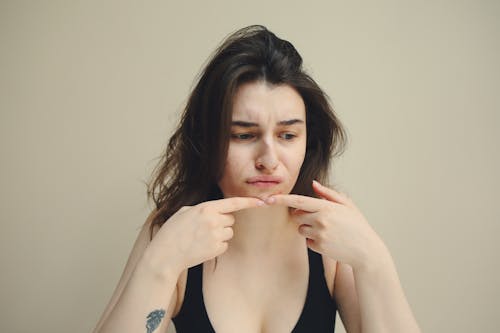
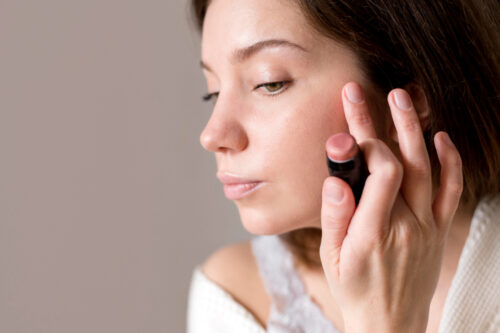
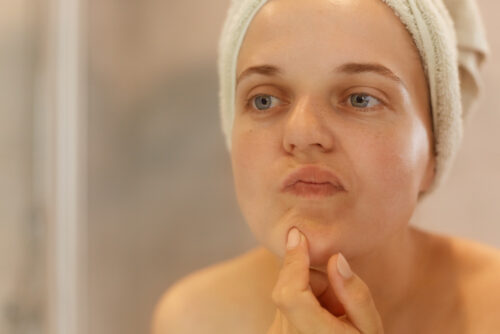

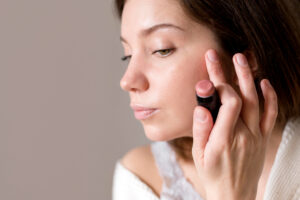
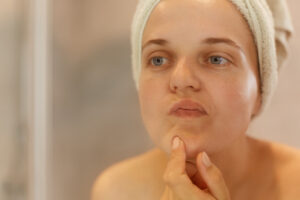








Post Comment